Fleurs du Mal Magazine


Or see the index

Brought together for the first time, here are 100 pieces of ‘Oulipo’ writing, celebrating the literary group who revelled in maths problems, puzzles, trickery, wordplay and conundrums.
Featuring writers including Georges Perec, Raymond Queneau and Italo Calvino, it includes poems, short stories, word games and even recipes. Alongside these famous Oulipians, are ‘anticipatory’ wordsmiths who crafted language with unusual constraints and literary tricks, from Jonathan Swift to Lewis Carroll.
 Philip Terry is a translator, and a writer of fiction and poetry. He has translated the work of Georges Perec, Stéphane Mallarmé and Raymond Queneau, and is the author of the novel tapestry, shortlisted for the Goldsmiths Prize.
Philip Terry is a translator, and a writer of fiction and poetry. He has translated the work of Georges Perec, Stéphane Mallarmé and Raymond Queneau, and is the author of the novel tapestry, shortlisted for the Goldsmiths Prize.
His poetry volumes include Oulipoems, Shakespeare’s Sonnets, Dante’s Inferno (a Times Literary Supplement Book of the Year, London Review Bookshop Book of the Week, and recipient of a Society of Authors Travelling Scholarship Prize), Quennets, and Dictator, a version of the Epic of Gilgamesh in Globish.
He is currently translating Ice Age signs from the caves at Lascaux.
• ‘Philip Terry’s collection is packed with fabulous, wide-ranging work that displays the full ingenuity, brio and originality of Oulipian ideals in action. An exhilarating feat of in-depth reading, and translating, it takes its place as the definitive anthology in English for decades to come.’ – Marina Warner
• Philip Terry’s playful selection will appeal to lovers of word games, puzzles and literary delights.
The Penguin Book of Oulipo
Queneau, Perec, Calvino and the Adventure of Form
Edited by Philip Terry
Imprint: Penguin Classics
Published: 31/10/2019
ISBN: 9780241378427
Hardcover
Length: 576 Pages
Dimensions: 240mm x 49mm x 162mm
RRP: £25.00
# new books
The Penguin Book of Oulipo
Queneau, Perec, Calvino and the Adventure of Form
Philip Terry (Edited by)
• fleursdumal.nl magazine
More in: #Archive Concrete & Visual Poetry, - Book Lovers, - Book News, - Objets Trouvés (Ready-Mades), Archive C-D, Archive O-P, Archive Q-R, Art & Literature News, AUDIO, CINEMA, RADIO & TV, Carroll, Lewis, Dadaïsme, Georges Perec, OULIPO (PATAFYSICA), Surrealisme, Swift, Jonathan
These never-before-published poems by Johnny Cash make the perfect gifts for music lovers and fans alike.
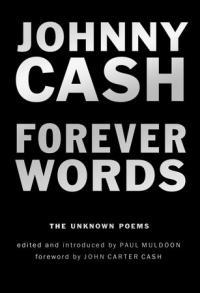 Edited and introduced by Pulitzer Prize-winning poet Paul Muldoon with a foreword by John Carter Cash, this poetry collection is illustrated with facsimile reproductions of Cash’s own handwritten pages. Now an album with music by Rosanne Cash, Brad Paisley, Willie Nelson, Kacey Musgraves, Elvis Costello, and more.
Edited and introduced by Pulitzer Prize-winning poet Paul Muldoon with a foreword by John Carter Cash, this poetry collection is illustrated with facsimile reproductions of Cash’s own handwritten pages. Now an album with music by Rosanne Cash, Brad Paisley, Willie Nelson, Kacey Musgraves, Elvis Costello, and more.
Since his first recordings in 1955, Johnny Cash has been an icon in the music world. In this collection of poems and song lyrics that have never been published before, we see the world through his eyes and view his reflection on his own interior reality, his frailties and his strengths alike. In his hallmark voice, he pens verses about love, pain, freedom, and mortality, and expresses insights on culture, his family, his fame, even Christmas. Forever Words confirms Johnny Cash as a brilliant and singular American literary figure. His music is a part of our collective history, and here the depth of his artistry and talent become even more evident.
JOHNNY CASH (1932–2003) was an American icon and country music superstar. He performed everywhere from Folsom State Prison to the White House. In 1980 he became the youngest living person to be chosen for the Country Music Hall of Fame; he was inducted into the Nashville Songwriters Hall of Fame in 1977, the Rock & Roll Hall of Fame in 1992, and the Gospel Music Hall of Fame in 2010. A recipient of the Kennedy Center Honors as well as the National Medal of Arts, he won nineteen Grammy Awards, four of them posthumously.
PAUL MULDOON is the author of twelve collections of verse, including Moy Sand and Gravel, for which he won the 2003 Pulitzer Prize for Poetry. He is the Howard G. B. Clark Professor at Princeton University, and between 1999 and 2004 he was Professor of Poetry at Oxford. Since 2007, Muldoon has been poetry editor of The New Yorker. He is a fellow of the Royal Society of Literature and of the American Academy of Arts and Letters.
Forever Words
The Unknown Poems
By Johnny Cash
Cat.: Poetry | Music
Paperback
$18.00
ISBN 9780399575150
144 Pages
Nov 12, 2019
Published by Plume
# new poetry
forever words
the unknown poems
by johnny cash
• fleursdumal.nl magazine
More in: # Music Archive, - Book News, Archive C-D, Archive C-D, Archive M-N, Art & Literature News, AUDIO, CINEMA, RADIO & TV
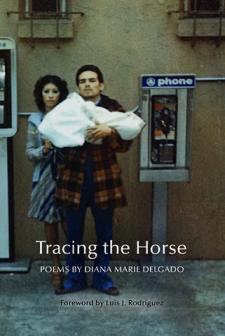 Set in Southern California’s San Gabriel Valley, Diana Marie Delgado’s debut poetry collection
Set in Southern California’s San Gabriel Valley, Diana Marie Delgado’s debut poetry collection
follows the coming-of-age of a young Mexican-American woman trying to make sense of who she is amidst a family and community weighted by violence and addiction.
With bracing vulnerability, the collection chronicles the effects of her father’s drug use and her brother’s incarceration, asking the reader to consider reclamation and the power of the self.
Diana Marie Delgado is the author of Tracing the Horse and the chapbook Late Night Talks with Men I Think I Trust. She is the recipient of numerous grants, including a fellowship from the National Endowment for the Arts. A graduate of Columbia University she currently resides in Tucson, where she is the Literary Director of the Poetry Center at the University of Arizona.
Come back with me
to the ruins.
We will look
through family
photographs;
I can show you
what the wind
and I did.
Who keeps
the stars
from falling
out of the sky?
Diana Marie Delgado
fragment from: Never Mind I’m Dead
Series: New Poets of America (Book 43)
Paperback: 112 pages
Publisher: BOA Editions Ltd.
September 10, 2019
Language: English
ISBN-10: 1942683871
ISBN-13: 978-1942683872
Product Dimensions: 6 x 0.2 x 8.5 inches
$ 17.00
# new poetry
Diana Marie Delgado
Tracing the Horse
• fleursdumal.nl magazine
More in: - Book News, Archive C-D, Archive C-D
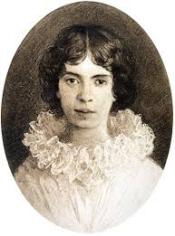
Aspiration
We never know how high we are
Till we are called to rise;
And then, if we are true to plan,
Our statures touch the skies.
The heroism we recite
Would be a daily thing,
Did not ourselves the cubits warp
For fear to be a king.
Emily Dickinson
(1830-1886)
Aspiration
• fleursdumal.nl magazine
More in: Archive C-D, Archive C-D, Dickinson, Emily
Op 19 december 2019 is – na een zeer kort ziekbed – overleden dichter J.A. (Jules) Deelder. De dichter werd volgens zijn familie “tot zijn eigen verbazing” 75 jaar oud.
 Jules Deelder (Rotterdam, 1944 – 2019) was een opvallende verschijning en erg geliefd als schrijver, dichter, muzikant en performer. Hij was zijn leven lang een groot liefhebber van Jazz en fan van de Rotterdamse voetbalclub Sparta. De club riep hem, kort voor zijn dood, nog uit tot lid van verdienste. Verder stond Deelder bekend als ‘De nachtburgemeester van Rotterdam’.
Jules Deelder (Rotterdam, 1944 – 2019) was een opvallende verschijning en erg geliefd als schrijver, dichter, muzikant en performer. Hij was zijn leven lang een groot liefhebber van Jazz en fan van de Rotterdamse voetbalclub Sparta. De club riep hem, kort voor zijn dood, nog uit tot lid van verdienste. Verder stond Deelder bekend als ‘De nachtburgemeester van Rotterdam’.
Jules Deelder werd gerekend tot de ‘performance poets’ ( of ‘popdichters’) een beweging die aansloot bij de ‘Beat Generation’ van Amerikaanse dichters als Allen Ginsberg en Jack Kerouac.
De familie van Deelder en uitgeverij De Bezige Bij, staan met dit gedicht stil bij zijn overlijden:
Zijn gaan is
een komen
Zijn komen
een gaan
Hij houdt niet
van zitten
Hij blijft
liever staan
Zichzelf
en de wereld
een raadsel
(Uit: De Zwarte Jager – J.A. Deelder, 1973)
I.M.
Jules Deelder
(1944 – 2019)
• fleursdumal.nl magazine
More in: # Music Archive, #Archive A-Z Sound Poetry, #Beat Generation Archives, #Editors Choice Archiv, Archive C-D, Archive C-D, In Memoriam, Jules Deelder
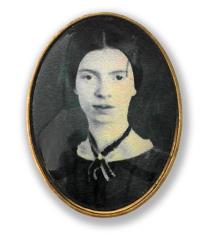
Drowning is not so pitiful
Drowning is not so pitiful
As the attempt to rise.
Three times, ’t is said, a sinking man
Comes up to face the skies,
And then declines forever
To that abhorred abode
Where hope and he part company, —
For he is grasped of God.
The Maker’s cordial visage,
However good to see,
Is shunned, we must admit it,
Like an adversity.
Emily Dickinson
(1830-1886)
Drowning is not so pitiful
• fleursdumal.nl magazine
More in: Archive C-D, Archive C-D, Dickinson, Emily

A Word
A word is dead
When it is said,
Some say.
I say it just
Begins to live
That day.
Emily Dickinson
(1830-1886)
A Word
• fleursdumal.nl magazine
More in: Archive C-D, Archive C-D, Dickinson, Emily
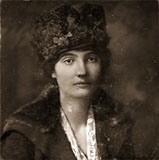
Approach
Apparelled in a mask of joy till now,
I knew thee not. Asleep, I see thy face
More simply. Sorrow s leisure lets me trace
The nicer lines. Thy sealed lids, thy brow,
Thy lasting posture, purposes avow ;
In thy spent form resides a moveless grace.
A pageant was thy life, and in its place
I find a truth to feed and to endow
My heart. Thy wonted mask of joy belied
The meaning death s bare attitude makes clear.
From living gesture thought went often wide,
And I was poor interpreter ; but here,
Where it would seem our thoughts anew divide,
The steady silence draws thy spirit near.
Gladys Cromwell
(1885-1919)
Approach
From: Songs of the Dust, 1915
• fleursdumal.nl magazine
More in: Archive C-D, Archive C-D, Cromwell, Gladys, Gladys Cromwell
Daniil Charms die in werkelijkheid Daniil Ivanovic Juvacov heette, werd in 1905 in St. Petersburg geboren, waar hij in 1942 stierf.
In 1926 richtte hij met Aleksandr Vvdenski en Nikolaj Zabolotski de avantgardegroep Oberiu (Objeedinenije realnogo iskoesstva – ‘Vereniging van reële kunst’) op. Hun doel was een artistieke revolutie door te voeren, parallel aan de politieke revolutie.
 Alhoewel ze het woord niet gebruikten pleitten ze voor absurde kunst. De doodsteek kwam toen ze in 1930 beschuldigd werden van protest tegen de dictatuur van het proletariaat. Charms werd in 1931 veroordeeld tot verbanning naar Koersk, waarvandaan hij in 1933 terugkeerde.
Alhoewel ze het woord niet gebruikten pleitten ze voor absurde kunst. De doodsteek kwam toen ze in 1930 beschuldigd werden van protest tegen de dictatuur van het proletariaat. Charms werd in 1931 veroordeeld tot verbanning naar Koersk, waarvandaan hij in 1933 terugkeerde.
Hij legde zich toen, omdat zijn werk voor volwassenen niet-publicabel was geworden, toe op kinderliteratuur.
Uiteindelijk werd hij in 1941, tijdens het beleg van het Leningrad (tot 1924 Petersburg genoemd), weer gearresteerd en krankzinnig verklaard. Charms stierf begin 1942, vermoedelijk uitgehongerd, in de psychiatrische afdeling van de gevangenis Kresty in Leningrad. Hij heeft geen graf.
Na zijn dood werden zijn manuscripten teruggevonden. In de jaren zestig begonnen publicaties van dit onuitgegeven werk te verschijnen, aanvankelijk vooral in het Westen. Op grond hiervan kreeg Charms algauw de reputatie van Ruslands belangrijkste absurdistische auteur.
# meer informatie op website: https://www.uitgeverijvleugels.nl/
daniil charms
De dappere egel
2019
60 pagina’s
vertaling: jan paul hinrichs
isbn 978 90 78627 82 1
uitgeverij vleugels
€ 21,80
uitgeverij vleugels
van ’t hoffstraat 27
2665 jl bleiswijk
t 06 30 49 77 49
email: info@uitgeverijvleugels.nl
website: https://www.uitgeverijvleugels.nl/
# more books
daniil charms
De dappere egel
• fleursdumal.nl magazine
More in: - Book News, - Bookstores, Archive C-D, Archive C-D, Archive K-L, Kharms (Charms), Daniil, Modernisme, Psychiatric hospitals, REPRESSION OF WRITERS, JOURNALISTS & ARTISTS, TRANSLATION ARCHIVE
The 2016 Nobel Prize in Literature recognized Bob Dylan as a major modern artist, elevating his work beyond the world of popular music.
In this book, Timothy Hampton focuses on the details and nuances of Dylan’s songs, showing how they work as artistic statements designed to create meaning and elicit emotion.
With Bob Dylan’s Poetics, Hampton offers a unique examination of both the poetics and politics of Dylan’s compositions. He studies Dylan not as a pop hero, but as an artist, as a maker of songs.
F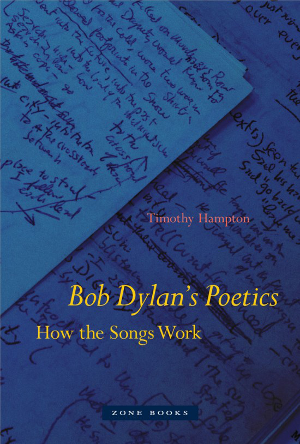 ocusing on the interplay of music and lyric, Hampton traces Dylan’s innovative use of musical form, his complex manipulation of poetic diction, and his dialogues with other artists, from Woody Guthrie to Arthur Rimbaud.
ocusing on the interplay of music and lyric, Hampton traces Dylan’s innovative use of musical form, his complex manipulation of poetic diction, and his dialogues with other artists, from Woody Guthrie to Arthur Rimbaud.
Moving from Dylan’s earliest experiments with the blues through his mastery of rock and country to his densely allusive more recent recordings, Hampton offers a detailed account of Dylan’s achievement.
Locating Dylan in the long history of artistic modernism, he examines the relationships among form, genre, and the political and social themes that crisscross Dylan’s work. With this book, Hampton offers both a nuanced engagement with the work of a major artist and a meditation on the contribution of song at times of political and social change.
Title Bob Dylan’s Poetics
Subtitle How the Songs Work
Author Timothy Hampton
Publisher MIT Press
Title First Published 01 March 2019
Format Hardcover
ISBN-10 1942130155
ISBN-13 9781942130154
Hardcover – $29.95
# more books
Bob Dylan’s Poetics.
How the Songs Work
by Timothy Hampton
• fleursdumal.nl magazine
More in: - Book News, - Bookstores, Archive C-D, Archive C-D, Archive G-H, AUDIO, CINEMA, RADIO & TV, Bob Dylan, Dylan, Bob
En décembre 1945, Louis-Ferdinand Céline est arrêté à Copenhague, où il s’était réfugié avec Lucette et son chat Bébert et tentait d’écrire la suite de Guignol’s band.
L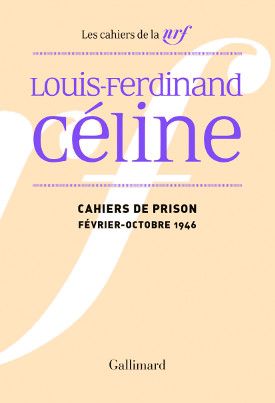 e dénommé Destouches, immédiatement incarcéré à la prison de l’Ouest, réclame de quoi écrire. L’administration pénitentiaire lui fournit dix cahiers d’écolier de 32 pages avec des règles à respecter : « On ne doit pas écrire sur l’affaire dont on est justiciable ni sur la détention. Tout propos licencieux et malséant est également interdit. »
e dénommé Destouches, immédiatement incarcéré à la prison de l’Ouest, réclame de quoi écrire. L’administration pénitentiaire lui fournit dix cahiers d’écolier de 32 pages avec des règles à respecter : « On ne doit pas écrire sur l’affaire dont on est justiciable ni sur la détention. Tout propos licencieux et malséant est également interdit. »
À partir de février 1946, le prisonnier note d’emblée des éléments de défense pour empêcher son extradition dans la France de l’épuration, et s’en prend à l’ambassadeur Charbonnières qui le persécute. Mais Céline est repris par l’écriture et les Cahiers de prison dévoilent sa vie après son arrivée au Danemark, sa relation avec Lucette, des souvenirs de Londres ou de Montmartre, et surtout montrent de manière inédite le Céline lecteur. Isolé dans la cellule 609 de la section K., Céline s’entoure de livres apportés par sa femme et cite abondamment Chateaubriand, Hugo, Chamfort, Voltaire, etc., en se comparant avec les « grands écrivains exilés emprisonnés ». Les Cahiers illustrent aussi la transition littéraire vers sa « seconde révolution narrative et stylistique », note Jean Paul Louis, avec la mise en chantier de Féerie pour une autre fois, et des passages que l’on retrouvera dans D’un château l’autre, Nord et Rigodon.
Ce volume des Cahiers de la NRF constitue la première édition originale et intégrale des Cahiers de prison de Céline. Avec un nouveau travail d’établissement du texte et des notes, ainsi qu’un index centré sur les noms d’auteurs et les titres d’oeuvres, Céline nous apparaît tel qu’en lui-même, obsédé par la littérature et sa condition d’écrivain : « C’est moi maintenant le traître, le monstre, c’est moi qu’on s’apprête à lyncher. »
Louis-Ferdinand Céline
Cahiers de prison (Février – octobre 1946)
Édition de Jean Paul Louis
Collection Les Cahiers de la NRF,
Série Céline (n° 13), Gallimard
Parution : 23-05-2019
240 pages
sous couverture décorée, 140 x 205 mm
Achevé d’imprimer : 01-05-2019
Genre : Mémoires et autobiographies
Thème : littérature
Catégorie – Sous-catégorie :
Littérature française
Mémoires et autobiographies
Époque : XXe siècle
ISBN : 9782072852695
Gencode : 9782072852695
Code distributeur : G03149
Broché
EUR 20,00
# more books
Louis-Ferdinand Céline
Cahiers de prison
• fleursdumal.nl magazine
More in: #Biography Archives, - Book Lovers, - Book News, Archive C-D, CRIME & PUNISHMENT, Louis-Ferdinand Céline, WAR & PEACE

The Gates of Utterance
There is a throng within the gates,
A pressing, diverse throng;
Without, a peaceful throng awaits,
To which I would belong.
Within the gates the varied folk
Advise discordantly;
Without, the poet-crowds convoke
To council harmony.
Within the gates are all the heights
And depths of serried powers;
But when a lyric theme invites,
I reach out-lying bowers
Where dwell the bards of quiet years ;
I join my song to theirs;
My glad, unfettered spirit hears
The melody it shares.
Gladys Cromwell
(1885-1919)
The Gates of Utterance
From: Songs of the Dust, 1915
• fleursdumal.nl magazine
More in: Archive C-D, Archive C-D, Cromwell, Gladys, Gladys Cromwell
Thank you for reading Fleurs du Mal - magazine for art & literature